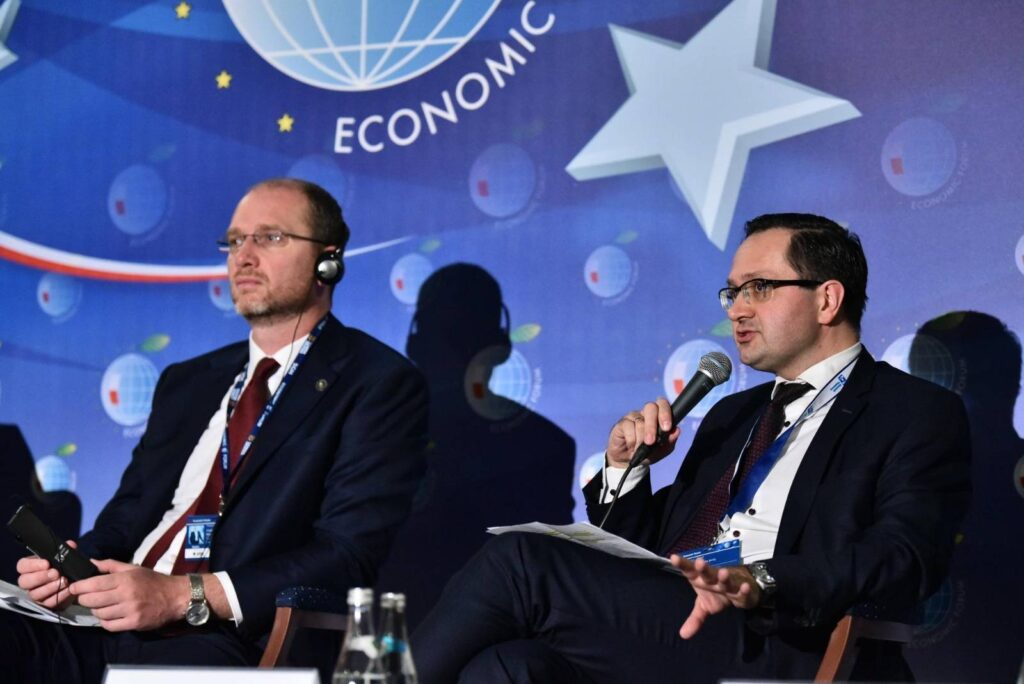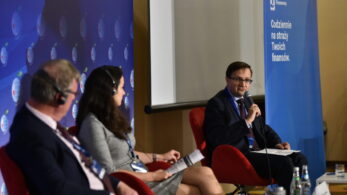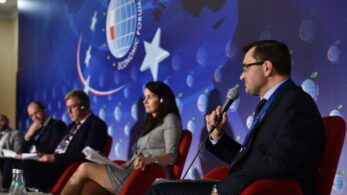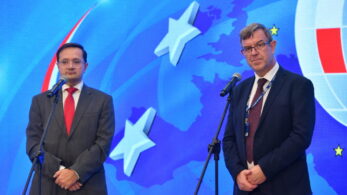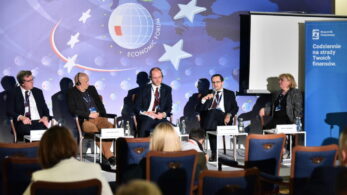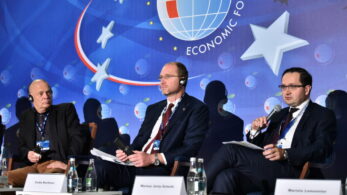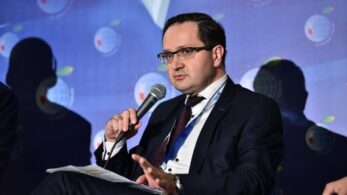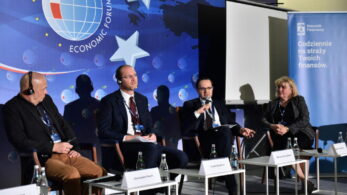All consumers in the European Union, regardless of where they live, should have the guarantee of the same level of their rights’ protection, unfortunately, practice shows huge inequalities in this area. Therefore, the Financial Ombudsman, a partner of the XXX Economic Forum in Karpacz, invited international experts to discuss customer protection on the European financial market.
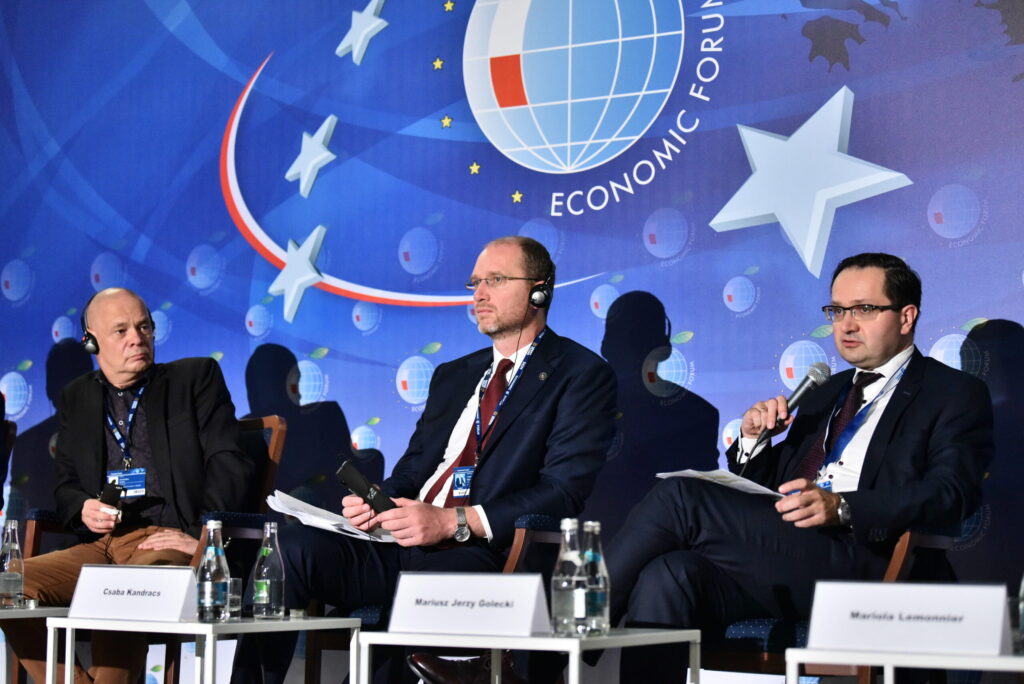
The most important issues discussed included those related to loans in Swiss francs, unauthorized payment transactions and consumer interests in general.
“We are dealing with the cross-border nature of consumer protection issues on the financial market in relation to both banking services, the capital and insurance markets and technology. The development of technology forces cooperation between entities in different countries, not only in the European Union, but also more broadly at the international level”, noted prof. Mariusz J. Golecki, Financial Ombudsman, explaining the need for extensive dialogue with experts from various countries.
The debates organized by the Financial Ombudsman were attended by, among others: Ger Deering, Financial Ombudsman of Ireland, prof. Teresa Rodriguez de les Heras Ballell of Charles III University of Madrid, Csaba Kandrács, Ph.D., Vice-President of the Central Bank of Hungary, prof. Laszlo Kiss of the National University of Public Service, András Pomeisl, Ph.D., of the Pázmány Péter Catholic University, prof. Christophe Paulin of the University of Toulouse, prof. Jacek Jastrzębski, Chairperson the Polish Financial Supervision Authority, prof. Piotr Tereszkiewicz of the Jagiellonian University, prof. Mariola Lemonnier, prof. Jakub Szczerbowski, Director of the Banking and Capital Market Client Department of the Financial Ombudsman and Financial Ombudsman, prof. Mariusz J. Golecki.
In defence of the financial market consumer
The debate focused on consumer protection issues in the context of financial products and services. Considerable attention was paid to the contemporary challenges of EU consumer law in the light of the European Parliament and Council (EU) Regulation.
The subject of loans denominated and indexed to foreign currencies was also discussed. Mariusz Golecki, Financial Ombudsman, pointed out that the biggest problems with Swiss franc loans occurred in Central Europe, but as the example of Spain shows, consumers in the so-called old EU countries also face problems with denominated loans.
– The same financial products have different numbers of abusive clauses in different countries. “The World Bank indicated that the same product from the same bank was much more toxic in Hungary than in Austria. There are also different attempts to solve this problem – in Hungary there were attempts at a statutory solution and conversion. We skipped this stage in Poland.” – says the Financial Ombudsman.
The discussion on unauthorized transactions aroused a lot of emotion, especially since anyone can become a victim of cybercriminals, regardless of geographical latitude. – Unauthorized transactions are currently one of the biggest risks associated with the so-called electronic banking. The development and availability of technology, and more recently the COVID-19 outbreak, have compounded the increase in criminal activity resulting in the theft of funds from bank accounts. We are approached by victims who in this way have sometimes lost their entire life savings – emphasized Mariusz Golecki during the debate.
Opportunities for transnational partnerships
XXX Economic Forum was also an excellent opportunity to strengthen cooperation between the Polish Financial Ombudsmen – prof. Mr Mariusz Golecki and Mr Ger Deering of Ireland pledged joint action to strengthen consumer protection on financial markets in both countries.
– It is important for us that both Poles and Irish people can move freely between countries. In Ireland as in Poland, and indeed across Europe, there are more and more pitfalls for customers of financial institutions. Insurance and loan agreements are complicated, with more and more provisions in the small print that can get customers into trouble for years to come – said Ger Deering. The Financial Ombudsman of Ireland also drew attention to the need to enforce the right to an Irish pension for Poles returning to their homeland after several years of work in Ireland.
As Mariusz J. Golecki pointed out, cooperation with the Irish Ombudsman is particularly important for Poland. Ger Deering is the Chairman of the INFO Network, a network of entities and organizations dedicated to resolving disputes between consumers and financial institutions in many global markets.
The Polish Ombudsman has announced that he intends to actively engage in European activities on the FIN-NET forum, in the work of which the Financial Ombudsman of Ireland is also involved
Discussion panels organized by the Financial Ombudsman as part of the XXX Economic Forum in Karpacz:
- Swiss franc loans today and tomorrow in the European context
- Unauthorised transactions as an example of contemporary threats to customer safety in the financial market
- Consumer protection in the financial market from the European perspective
In addition to the panels organized by the Financial Ombudsman, prof. Mariusz J. Golecki also accepted an invitation to participate in a panel as part of the Europe of the Future program, during which the invited guests tried to answer the question “Does liberal capitalism need conservative values?”. The discussion moderated by the MP Paweł Poncyliusz was also attended by Rev. prof. Stanisław Dziekoński, Bartłomiej Wróblewski and Władysław Kosiniak Kamysz.
– Economic freedom and innovation often go hand in hand with far-reaching consumer protection, including on the financial market. It is in highly developed, liberal markets, such as the UK or the US, that the institution of the Financial Ombudsman enjoys great independence and plays an important role in the entire system, especially after the so-called Lehman Brothers crisis in 2008. – said Golecki.
According to Golecki, the creators of the united Europe, such as Konrad Adenauer, Robert Schuman and Joseph Bech, were strictly conservative politicians, for whom freedom was as important as the norms of social coexistence and timeless principles that should guide the European community.
We invite you to watch, a short film summary:




